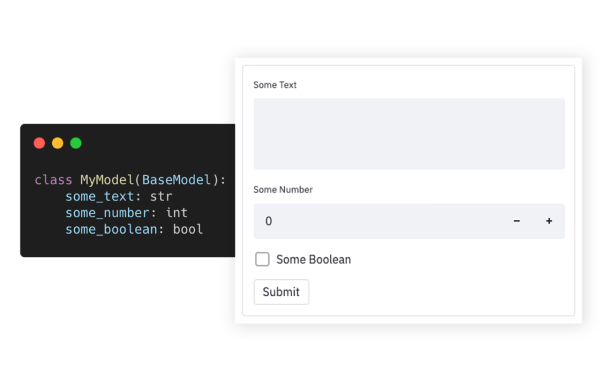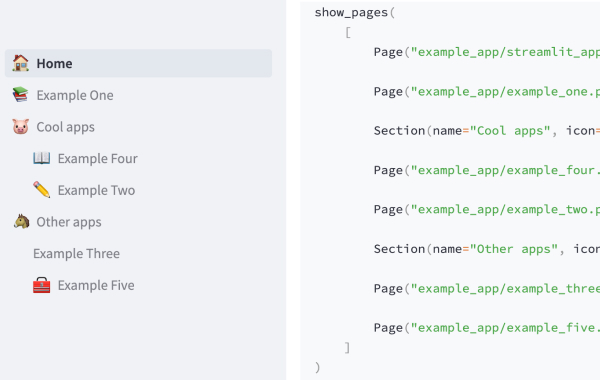Execution flow
Change execution
By default, Streamlit apps execute the script entirely, but we allow some functionality to handle control flow in your applications.

Modal dialog
Insert a modal dialog that can rerun independently from the rest of the script.
Fragments
Define a fragment to rerun independently from the rest of the script.
Rerun script
Rerun the script immediately.
Stop execution
Stops execution immediately.
Group multiple widgets
By default, Streamlit reruns your script everytime a user interacts with your app.
However, sometimes it's a better user experience to wait until a group of related
widgets is filled before actually rerunning the script. That's what st.form is for!
Forms
Create a form that batches elements together with a “Submit" button.
Form submit button
Display a form submit button.
Third-party components
These are featured components created by our lovely community. For more examples and inspiration, check out our Components Gallery and Streamlit Extras!
Still have questions?
Our forums are full of helpful information and Streamlit experts.




